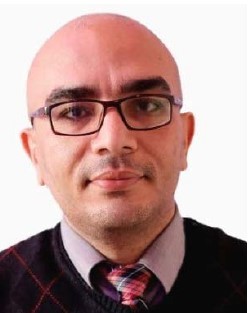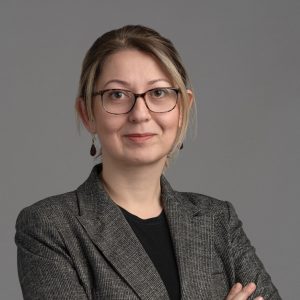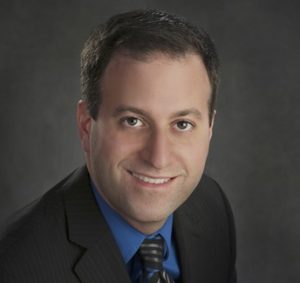
Bio:MOHAMED ABDELRAHEEM (MEMBER, IEEE)
received the B.Sc. and M.Sc. degrees in electrical engineering from Assiut University in 2004 and 2010, respectively, and the Ph.D. degree in electrical engineering from Virginia Tech, USA, in 2015. He is currently an Associate Professor of Electrical Engineering at Assiut University, Egypt. His research interests include wireless networking, the Internet of Things, and embedded systems design and structural health monitoring. Dr. Abdelraheem has been a PI and Co-PI for a number of research projects from Egyptian funding entities like STIFA, NTRA, and ITIDA. He is a Royal Academy of Engineering-leaders in innovations fellow. He has been serving as a reviewer for a number of IEEE conferences and journals.
AssIuT IoT: A remotely accessible testbed for IoT applications
AssIuT IoT is an educational and remotely accessible testbed for internet of things
applications. The testbed adopts the Experiment as a Service (EaaS) model in which
users can access the testbeds and reserve/use the available resources remotely over
the internet. Also, the testbed is federated with other ones distributed among
different locations to allow sharing of resources, user accounts, and policies.
AssIuT-IoT testbed consists of a control server and a set of IoT nodes (hardware
resources) supported with different wireless communication capabilities.

Fig. 1 depicts a simple scenario to illustrate the general operation mechanism of
AssIuT-IoT testbed. In this scenario, the testbed user has only a computer connected
to the internet to access the testbed and to build an IoT project. The user, offline,
writes and compiles the codes required for the IoT nodes needed for the experiment.
Then the user logs into the control portal using a secure authentication procedure,
and reserves some of the available IoT nodes for a certain time which should be
enough to complete the required experiments. Then, using the testbed portal, the user
uploads the code and programs the reserved IoT nodes. After proper configuration
of the IoT nodes, they start to work according to the user setup. After the expiry of
the reservation time, the IoT nodes are released for other users.
Prof.Gunes Karabulut Kurt

Title: On the Security of Cognitive Cities: A Cyber-Physical Systems Perspective
Abstract: Wireless cyber-physical systems (CPSs) are integrated closed-loop solutions with cyber and physical components, and they are expected to serve as the basic foundational block of cognitive cities. The security of these highly capable CPSs running day-to-day activities is a critical issue that needs to be addressed collaboratively with the quality of service (QoS) constraints and the associated transmission costs. In this talk, the properties of CPS will be highlighted along with possible security threats and the corresponding QoS needs from the perspective of cognitive cities. A flexible, risk-aware security framework will be discussed, supported with prominent physical layer security solutions. Experimental results will be presented along with the simulation results.
Bio: Gunes Karabulut Kurt received the B.S. degree with high honors in electronics and electrical engineering from the Bogazici University, Istanbul, Turkey, in 2000 and the M.A.Sc. and the Ph.D. degrees in electrical engineering from the University of Ottawa, ON, Canada, in 2002 and 2006, respectively. From 2000 to 2005, she was a Research Assistant with the CASP Group, University of Ottawa. Between 2005 and 2006, she was with TenXc Wireless, Canada. From 2006 to 2008, she was with Edgewater Computer Systems Inc., Canada. From 2008 to 2010, she was with Turkcell Research and Development Applied Research and Technology, Istanbul. Between 2010 and 2021, she was with Istanbul Technical University. She is currently an Associate Professor of Electrical Engineering at Polytechnique Montréal, Montreal, QC, Canada. She is a Marie Curie Fellow and has received the Turkish Academy of Sciences Outstanding Young Scientist (TÜBA-GEBIP) Award in 2019. She is an adjunct research professor at Carleton University. She is also currently serving as an Associate Technical Editor (ATE) of the IEEE Communications Magazine and as a member of the IEEE WCNC Steering Board.
Dr. Rami Abielmona

biography
Dr. Rami Abielmona is the Vice President of Research & Engineering at Larus Technologies Corporation. He is responsible for all research and development of AI/ML software, hardware and products, as well as the management and direction of the research team.
Rami joined Larus in 2007 to lead the integration of software engineering corporate knowledge with research in artificial intelligence, machine learning, wireless sensor and robotic networks, multi-sensor data fusion and computationally intelligent processing architectures, resulting in the patented Larus Total::Insight™ Decision Support System (DSS) as well the Larus Total::Perception™ Systems Simulation Engine (SSE). Rami also directs, manages and oversees the internal technology pipelines and innovation cycles as well as the technical demonstrations given to Larus’ strategic partners.
Rami received his B.A.Sc., M.A.Sc. and Ph.D. degrees in Computer and Electrical Engineering, from the School of Information Technology and Engineering at the University of Ottawa, where he currently serves as an Assistant Professor. He was a CMC Success Story in 2005 for his Ph.D. research. He received the NSERC Industrial Research and Development Fellowship (IR&DF) in 2007 and the IEEE MGA Achievement Award in 2008. He was one of the recipients of the Ottawa Business Journal (OBJ) Top 40 Under 40 Award in 2011. He was also named as the Part-Time Professor of the Year at both the Faculty of Engineering and the University of Ottawa in 2012. He was awarded the IEEE Ottawa Section Outstanding Volunteer Award in 2014. He was a recipient of the NSERC Synergy Award for Innovation (for Small and Medium-Sized Companies) in 2016 and most recently, received the IEEE Ottawa Section Outstanding Engineer Award in 2020. He also became a licensed Professional Engineer in Ontario in 2008, as well as a Senior Member of the IEEE in 2011.
Larus Technologies (Vice-President) and University of Ottawa (Assistant Professor)
Abstract
All-Domain Awareness According to AI/ML-Driven Big Data Analytics
Decision support systems (DSSs) are playing an increasingly important role in the characterization of suspicious activities in an area of interest given their proven ability to turn vast amounts of raw data into actionable intelligence that is easy to understand and act upon by human operators. In this talk, we present real-world AI/ML Big Data solutions involving unique learning algorithms that allow one to process vast amounts of critical information combined with knowledge acquired from specific domains. These unique models and architectures continually deliver the most accurate information possible in order to constantly optimize the decision maker’s domain awareness. Attendees will learn innovative concepts such as anomaly detection, sensor cross-cueing and tasking, automated data collection scheduling and planning as well as response generation to provide focused surveillance and account for behavioral intents while ensuring that no event of interest is missed because of human fatigue or because of data overload while only relevant alarms are investigated.
Prof. Dr. Maha Elsabrouty
5G and B5G Research directions and practical implementation on Testbeds:
5G communication systems builds on the success of the 4G communication system in taking mobile internet to a competitive level. 5G on the other hand has the mission to penetrate mission critical industrial applications as well as pave the way to massive application of Internet of things (IoT). In this talk we review the key applications and technologies in 5G and how successful they are in real deployment. We also discuss the main trends in 6G. The talk also focuses on practical testbed for 5G communications systems in Egypt that is funded by the NTRA and is located in Egypt-Japan University of Science and Technology (E-JUST). In the context of this testbed, we open a discussion on how to practically test different technologies of 5G, the limitations and the extension of this testbed to 6G and B5G technology.
Biography
Prof. Dr. Maha Elsabrouty received her BSc. in Electronics and Electrical Communication Engineering, with honors from Cairo University, Egypt. She received the M.Sc. and PhD degrees in Electrical Engineering from the University of Ottawa, Canada.
Currently, Prof. Elsabrouty is with E-JUST University, department of Electronics and Communication Engineering (ECE) since September 2010, where she is involved in Teaching graduate courses, supervising Masters and PhD students and conducting several advanced research work granted by funding agencies in Egypt and abroad.
Her current research interest focuses on physical layer techniques, advanced methods of channel coding, MIMO communications, IoT, 5G and beyond, Cognitive radio and wireless sensor networks.
She has supervised over 10 PhD theses and 10 MSc. Theses. Dr. Elsabrouty has also acted as the executive director of the center of innovative technology (CINTECH) from January 2015 to January 2018. The center is responsible for technology transfer, patent filing and communication with the industry along with supporting spin-offs and start-ups. Dr. Elsabrouty has been a key member in developing the 1st innovation cluster in ICT in Egypt in Borg Elarab, specialized in the internet of things as part of the fund from ITIDA from 2017 to 2022. She has also been active advocate of entrepreneurship and industrial cluster, attending several courses and establishing strong ties with the innovation eco-system allover Egypt. Currently, Prof. Elsabrouty is the chair of IEEE Alexandria Subsection.